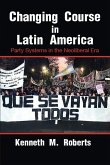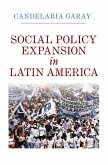Interviews with active-duty and retired military officers in Ecuador and Peru shed light on the evolution of Andean civil-military relations, with implications for democratization.Military Politics and Democracy in the Andes challenges conventional theories regarding military behavior in post-transition democracies. Through a deeply researched comparative analysis of the Ecuadorian and Peruvian armies, Maiah Jaskoski argues that militaries are concerned more with the predictability of their missions than with sovereignty objectives set by democratically elected leaders. Jaskoski gathers data from interviews with public officials, private sector representatives, journalists, and more than 160 Peruvian and Ecuadorian officers from all branches of the military. The results are surprising. Ecuador's army, for example, fearing the uncertainty of border defense against insurgent encroachment in the north, neglected this duty, thereby sacrificing the state's security goals, acting against government orders, and challenging democratic consolidation. Instead of defending the border, the army has opted to carry out policing functions within Ecuador, such as combating the drug trade. Additionally, by ignoring its duty to defend sovereignty, the army is available to contract out its policing services to paying, private companies that, relative to the public, benefit disproportionately from army security. Jaskoski also looks briefly at this theory's implications for military responsiveness to government orders in democratic Bolivia, Colombia, and Venezuela, and in newly formed democracies more broadly.
Dieser Download kann aus rechtlichen Gründen nur mit Rechnungsadresse in A, B, BG, CY, CZ, D, DK, EW, E, FIN, F, GR, HR, H, IRL, I, LT, L, LR, M, NL, PL, P, R, S, SLO, SK ausgeliefert werden.









